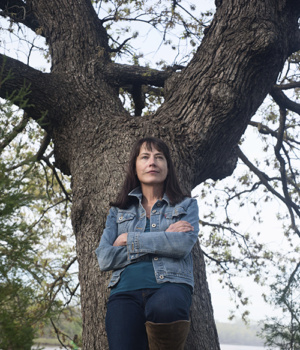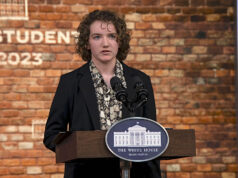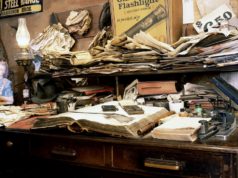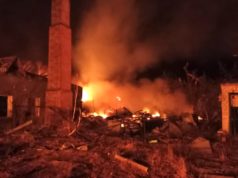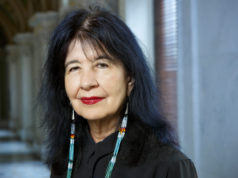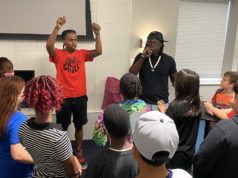After hearing Oklahoma’s award-winning Poet Laureate Jeanetta Calhoun Mish speak in April at Full Circle Bookstore, I can’t wait to hear her speak Thursday at Oklahoma City University.
The wonderful aspects of Mish’s childhood in Oklahoma illuminate the best aspects of the state’s culture. Those same aspects also foreshadow the ways that we have abandoned so many of our founding virtues.
‘Work is Love Made Visible’
Mish’s book of poetry from 2009, Work is Love Made Visible: Poetry and Family Photographs, won the 2010 Oklahoma Book Award for Poetry and the 2010 Western Heritage Award for Poetry. The collection’s eponymous piece, Work is Love Made Visible, says, “my granny would sit at her sewing machine and attire me in vestments of love.”
Grandpa’s Bouquet echoes that love:
your hands, rough from plowing gardens and tending cattle, caress my little girl hair and soon I’m off to sleep.
Mish’s familial devotion was intertwined with a commitment to neighbors that we Oklahomans now mourn as a fading cultural value. She recalls “Rebecca Last-Name-Unknown in the family tree” and “she of the fantastic name Addie Malissa Mississippie.” Her grandmother ran the Busy Bee Café with “a perfect poem on the façade. … this is where I feed the hungry.”
The poem Remnants recalls the neighborliness that kept us together during the worst of our long history of hard times. At 8:30 a.m., Mrs. Cohen would roll canvas bins to the street full of “remnants of velvet, bolt ends of silk, Ruby red polished cotton and stern grey wool.” Soon, 20 women would be “Laughing and talking, consoling and condoling …” as they picked through the leftovers. By 9:30, the bins would be empty:
The week’s news disseminated, the judgments made
The scraps and pieces of our small town
… And sewn into something respectable.
Too many of Mish’s friends and family did not endure untouched. Her wisdom is rooted in an Oklahoma history that has often been tragic, and it grows into a universal version of the love she expresses for her rootless sister:
I care why she goes because she goes in my stead.
… there is no reason to stay home
When home is the last place you want to go.
And now, Rosasharn Reports from California in the 21st Century to remind us that today’s immigrants are no different than our Okie forefathers. She’s “not the same girl you saw last in that book of Mr. Steinbeck’s.” Rosasharn complains:
Wouldn’t you just know it?
Plain talk is out of fashion.
… I ain’t changed that much
And neither have the times.
This poem and What I See both contain references to postmodernist literary criticism indicating that Mish was exceptionally prophetic in chronicling the lost world that explains the world of Donald Trump. Even as prosperous professionals and academics parsed their words in articulating theories of action for competing in the global marketplace, they barely considered the economic consequences of jobs disappearing. Left-behind workers felt disrespected, looked down upon and voted their resentment in the 2016 presidential election. So, I use Mish’s words to ask:
When work is love made visible, what happens when work disappears?
As the titular poem says:
My granny would uncover her sewing machine
And stitch our family together.
Nobody has invented a sewing machine to rebind us. It’s up to us to get to work building on the remnants of the familial and community bonds that sustained our grannies and grandpas.
Much to be learned from Mish
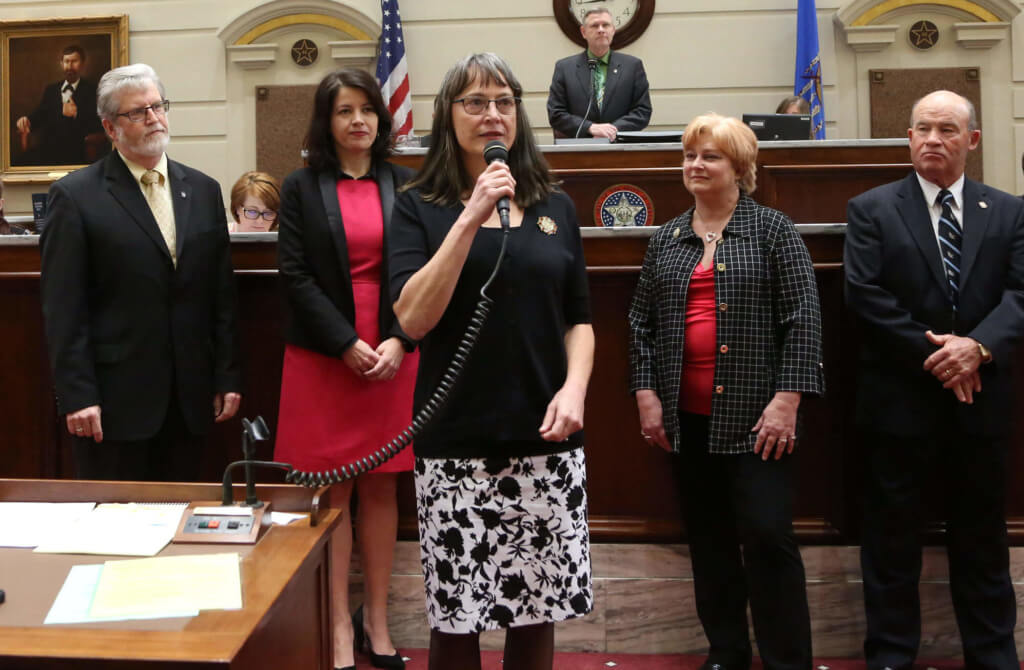
Whether we are talking about the American “opioid belt” where deaths from despair are exploding or the loss of hope that gave us Trumpism, we can learn from the ways that the Mish family successfully and tragically wrestled with the decline of work.
A good first stitch can be contributed by attending Mish’s upcoming poetry reading at 6 p.m. Thursday in Oklahoma City University’s Dulaney-Browne Library. Mish will read selections from her 2016 work, What I Learned After the War, as well as other pieces during her first solo appearance since Gov. Mary Fallin designated her as Oklahoma Poet Laureate in March.









